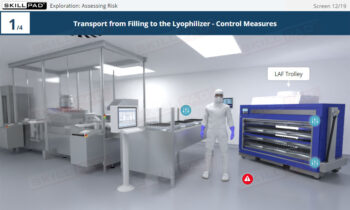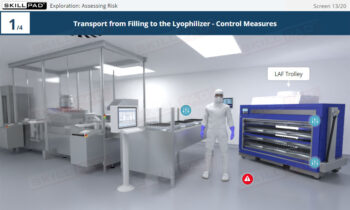Contamination Control Strategy – Annex 1 and QRM
The Annex 1 and QRM Module explains the ‘why’ behind Contamination Control Strategy (CCS) and Quality Risk Management (QRM) for all employees involved in sterile product manufacture. It provides a solid understanding of CCS and the holistic nature of contamination control, ultimately improving CCS design and implementation. The module is deployable on any LMS and can be branded and tailored to your company’s exact specifications.
Interested in the ‘how’ of QRM and CCS? Please see our companion module Contamination Control Strategy – QRM in Practice!
Duration: 30 Mins
Description
Learning Objectives:
|
Module Features:
Animations |
|---|
Keywords
| EU GMP Annex 1 Contamination Control Strategy Critical Control Points Quality Risk Management Regulatory Compliance Risk Assessment |
Risk Control Risk Communication Risk Management Risk Review Sterile Product Manufacturing |
|---|








